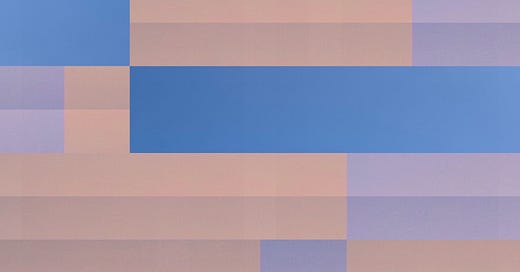In December, I published a note that finished with:
Stefan Zweig begun his memoirs, The World of Yesterday, with the following judgement: ‘when I attempt to find a simple formula for the period in which I grew up, prior to the First World War, I hope that I convey its fullness by calling it the Golden Age of Security.’ It increasingly feels that we have reached a similar point, the end of another golden age.
This reflection was connected to a longer piece I was writing for The Journal of Global Ethics. The article is now available and open-access, so it is free to read and download:
Christopher Hobson. ‘The Passing of Another Golden Age: Global Ethics in a Time of Deglobalisation.’ Journal of Global Ethics, March 2025.
It responds to a prompt offered by the journal editors: ‘to consider changes to the global context that have altered the space within which ethical consideration proceeds.’ My argument is rather straightforward:
At the end of another golden age of security, there exists an awareness of an old order no longer fit for purpose, a recognition of new forces emerging, the need for change, the necessity of making tough choices, all alongside great difficulty in imagining how any of it might occur.
The piece commences with:
Reflecting on Europe prior to World War I, the Austrian writer Stefan Zweig nostalgically described it as a, ‘golden age of security’. His reminiscences have an eerie resonance placed in the present moment. In 2025, with the post-Cold War era definitively over, it appears that another golden age has passed, a time in which geopolitical competition moved to the background and an unparalleled wave of globalisation transformed the world. In both periods, the threat of systemic war was limited, with conflict occurring in the periphery, while an uninhibited rendering of liberalism resulted in considerable economic growth albeit in a radically uneven manner and at great expense to others, alongside the increased movement of goods and people, as well as major advances in communication and rapid cultural change. Returning to Zweig, he ruefully reflected, ‘and what did the people as a whole know about war in 1914, after almost half-a-century of peace? They had no idea what it was like, they had hardly ever thought of it’. The same could be said for much of the world today. At a time when disorder is spreading, and the risk of direct Great Power war is growing, it is valuable to recall such tragic experiences before sleepwalking into another catastrophe.
And concludes by judging:
There is strange, heady rush back to confrontation and conflict, with anger, fear and ressentiment powerfully shaping behaviour. An honest analysis of the current constellation of forces would suggest that the most likely direction of travel is towards further fragmentation and deepening disorder. In such conditions, a feasible agenda for global ethics would appear to be one that is much more minimal and defensive in scope. This sentiment was captured by Tony Judt at the end of his life: ‘we are likely to find ourselves as intellectuals or political philosophers facing a situation in which our chief task is not to imagine better worlds but rather to think how to prevent worse ones.’
In conditions of polycrisis, our energies might need to be directed more towards preventing the bad than advancing the good.
For the rest, please have a look at the whole article.




